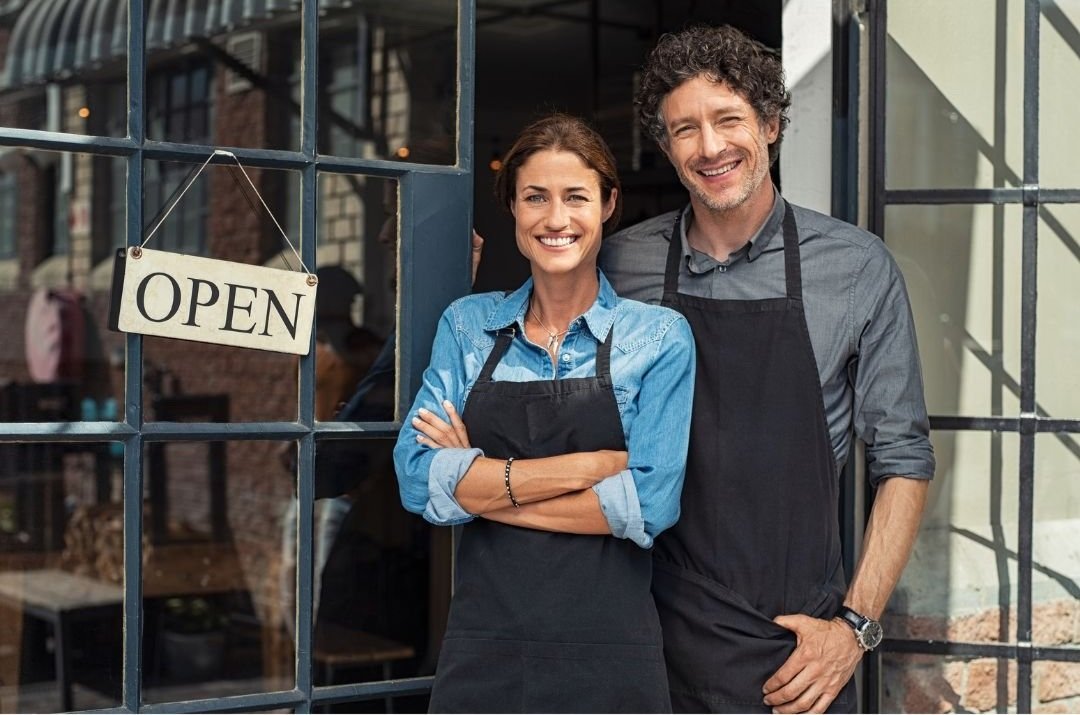Untangling love and business. Navigating divorce when you own a business together.
Divorce is a difficult and emotional process that becomes even more complicated when a business is involved. If you and your former spouse have decided to go your separate ways but still have a shared business to run, there might be further challenges during your divorce.
You may be worried about what will happen to your family business and your role within it.
In this blog, I will explore the main areas to consider when divorcing your business partner and share some practical steps to navigate the challenges of shared business ownership during a divorce to allow you to make positive choices and find solutions when your marriage comes to an end.
The different types of parenting after separation or divorce: which one fits your family?
Separation or divorce can be difficult, and it can be even more complicated when children are involved. But, it is crucial to put your children’s needs first and ensure they are provided for emotionally, physically, and mentally. You can achieve this by prioritising their wellbeing and working towards a parenting relationship that is healthy and positive for all involved.
In this blog, I look at the following types of parenting so that you can decide which one would best suit your family:
Collaborative Parenting (or Co-parenting)
Birdnesting
Parallel Parenting
Distant Parenting
Supervised Parenting
How to build inner strength and resilience during divorce
Divorce can be an extremely challenging and stressful time, and it can be emotionally draining, leaving you feeling like you don't have the strength to keep going.
Resilience gives people the strength to tackle difficult situations like divorce, overcome heartache, and move on with their lives. So, resilience is an important skill you can build during your divorce to help you get through this tough time and make you stronger.
Being resilient means that you are able to respond to the challenge you are facing, while remaining calm and in control in the process, in a way that not just helps you survive but also bounce back.
In this blog, I share some tips on how to build your inner strength and resilience.
Breaking the news: how to tell family and friends about your divorce
When you make the difficult decision to divorce, sharing the news with your family and friends can be daunting. It’s natural to worry about their reactions and make assumptions about how they will respond. However, while you can’t control their reactions, you can control how and when you communicate the news. With some planning and preparation, you can take control of the conversation and reduce the anxiety involved.
If you have decided it’s time to break the news, this blog post gives you some helpful tips.
Should we share a single professional in our divorce?
More separating couples are choosing to work together with a single professional since the “no-fault” divorce law introduced in England and Wales in April 2022 opened the door to joint divorce applications.
The main driving factors for a separating couple to work together in their divorce are:
their wish to resolve their divorce amicably and with dignity;
to reduce the impact, protect and benefit the family as a whole and build a positive parenting relationship if they have children;
to avoid conflict by having separate lawyers; or
to minimise the costs.
Other factors include looking for an out-of-court solution, controlling the outcome, and seeking privacy and confidentiality.
You may be wondering whether sharing a divorce and family law professional would work for you and what the benefits are of divorcing together.
7 Tips for learning to trust again after separation and divorce
As a result of the ending of your marriage, you may be questioning everything and become less trusting as a form of self-protection. This mistrust can show up in different ways. You may feel you need to be dishonest or secretive (or that the other person is), or you may often doubt whether the other person is going to keep their promises, or you believe that the only person you can rely on is yourself, or you may even become dependable on someone else because you don’t trust your own judgment or decisions anymore.
If you wish to:
have better relationships and avoid reacting with fear and suspicion,
heal and recover from betrayal, and
stop doubting yourself and regain your confidence
you will need to take steps to learn to trust again, so I’m sharing some tips to help you.
10 Healthy tips to cope with stress during separation and divorce
Stress usually happens when you find yourself in a situation you cannot control or feel under pressure or threatened.
Most of us are used to experiencing some stress in our daily lives. A small amount of stress can be positive to move you forward, but there is also a type of stress that can be damaging and affect you mentally and physiologically. This is characterised by being intense or lasting for a long time. That’s the kind of stress that you may encounter when facing a divorce.
Divorce is rated as one of the most stressful experiences you could have in your life. It’s a significant life transition involving considerable changes. Whether the decision to end the relationship was yours, mutual or out of your hands, or whether the process is amicable or contentious, it can be a stressful and painful journey.
Can school support your child during your separation and divorce?
When children learn about their parents’ separation or divorce, they can have different experiences and reactions depending on many influential factors: age, personality, understanding, parents’ behaviour, hostility, and level of support… However, what all have in common is that they will go through a period of grief, even if the split is amicable and spend time with both parents regularly.
Children may feel a range of emotions like sadness, frustration, anger and anxiety, which can translate into emotional and behavioural difficulties: becoming naughty or demotivated, being more aggressive and controlling, or becoming quiet and withdrawn. This new situation can also make some children feel insecure. Naturally, these strong emotions and behaviour can be brought into school, affecting their social and emotional wellbeing and their concentration, ability to engage or interest in learning, which can consequently impact their academic performance.
How to keep your sanity whilst living together during your separation
Whether for financial reasons or to offer stability to your children, you may find yourself living under the same roof after splitting up while the final divorce is pending.
There is much-outdated advice online about what you should or shouldn’t do in the eyes of the law if your relationship has ended but you remain living in the same family home. Since the introduction of the new divorce legislation in England and Wales on 6 April 2022, known as the “no-fault” divorce law, there are no longer requirements to be separated for a minimum period before issuing a divorce or to prove that you are “under the same roof but living apart”. The only current requirement for divorce is a statement that the marriage has irretrievably broken down. This positive change offers separated couples the freedom and flexibility to decide how they wish to organise their new relationship and lives.
5 Practical Tips To Minimise Co-Parenting Challenges
Parenting during a healthy relationship is not easy. However, co-parenting after a separation or divorce can be even more challenging and feel impossible, especially when you bring into the mix the high emotions, relationship issues and the wish to cut ties with your ex. You are bound to face some challenges.
Today I’m going to share with you some practical tips to help you improve the quality of your co-parenting relationship and, consequently, offer your children the stability, security, and love they need. How you and your ex, as parents, behave can strongly influence your children's mental and emotional wellbeing and how they adjust to this new chapter of your lives.
Will the new "no-fault" divorce law lead to more amicable divorces?
The Divorce, Dissolution and Separation Act 2020 becomes the new divorce law in England and Wales from 6 April 2022. It is the most significant reform in divorce legislation in the last 50 years. In addition to implementing a new divorce process, this new legislation removes the ability to make allegations of blame, hence being called the “no-fault” divorce law. For the first time, it allows couples to end their marriage jointly by submitting a joint application. The possibility of contesting the divorce, other than for legal reasons, has also been removed.
Most divorce experts believe that the new no-fault divorce will lead to more amicable divorces. I agree that it is a step in the right direction. The removal of fault is likely to translate into a less acrimonious start to the process. It can be the pathway to setting the right tone from the very beginning to incentivise a friendly resolution. However, is this enough for couples to achieve an amicable divorce?
How to thrive as a single mum after separation or divorce
Following your separation or divorce, the family dynamics will have changed. If dad is no longer at home, you may have sole responsibility for your children’s care whilst they are with you.
You may find this new parenting situation overwhelming, especially at the very beginning when trying to adjust to your new reality. The change can feel stressful as you are raising your children at home on your own without the support from your ex. You may still be grieving and dealing with the aftermath of your separation or divorce whilst trying to build your new way of life. Day to day domestic chores, work demands, financial worries and the need to safeguard and care for your children during this new episode of your life can put a strain on your well-being.
How do we split the contents of the matrimonial home?
As part of your financial arrangements upon divorce, you will need to decide how to divide the household items and possessions. These may be of low monetary value for many families and have little impact on the overall matrimonial pot. However, some couples invest in valuable paintings, art, collections, jewellery, furniture…
So, what should you do and consider?
Protecting your online privacy during a divorce
When you are going through a divorce, one of the things you will need to consider is how to protect your privacy. It is not unusual for spouses to share their personal data during the marriage and have access to each other’s accounts and devices.
Protecting your privacy may not be on the top of your priority list right now with everything else going on, or you may not have contemplated it. However, even if your divorce is amicable, taking proactive steps to protect your online data is vital to keep your privacy and set boundaries. The sooner you regain control over your privacy, the better.














